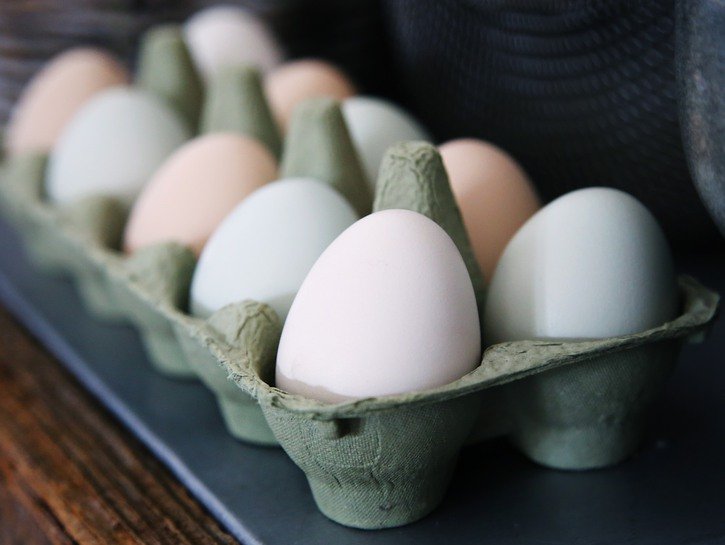I’m sure you’ve noticed that when you head into a supermarket you see the eggs sitting in their cartons in the refrigerator, waiting to be purchased. Though this might seem normal to citizens on this side of the pond, it’s not exactly common practice in other parts of the world to have refrigerated eggs that are sequestered from other foods. It’s also not common practice to wash eggs before putting them out on the market.
But, America prefers their eggs to be squeaky clean and kept in cold locations. Why? Well, it turns out that Americans are a little squeamish about this fragile food.

Essentially, eggs in America are hatched and then farmers put them through a cleaning process using soap and water. The egg shells are then made completely clean before being placed in cartons and stuck in the fridge.
According to NPR, the reason why this happens is that farmers are protecting consumers from the risk of salmonella. Food writer Michael Ruhlman told NPR that “It just sort of seeped into our culture that chickens are dirty, or crawling with bacteria,” hence the washing before selling. However, washing them beforehand also ruins the protective coat around eggs, which opens the door to bacteria seeping in. Yi Chen, a food scientist at Purdue University, told NPR that the coating is damaged in the washing process and the eggs then need to be kept in refrigerated areas to keep microorganisms at bay and sprayed with oil to prevent bacteria from getting in.
Washing eggs isn’t exactly common practice in other countries. Europe doesn’t bother to wash their eggs because not washing the eggs leaves a protective coat over top of it, thereby making them safe for consumption and safe in room temperatures. Frankly, American eggs would actually be illegal to sell in Europe because EU marketing laws state that you can’t wash the eggs in any way before sticking them on supermarket shelves.
The marketing laws also state, “In general, eggs should not be washed or cleaned because such practices can cause damage to the egg shell, which is an effective barrier to bacterial ingress with an array of antimicrobial properties. […] Class A eggs should not be washed because of the potential damage to the physical barriers, such as the cuticle, which can occur during or after washing. Such damage may favour trans-shell contamination with bacteria and moisture loss and thereby increase the risk to consumers, particularly if subsequent drying and storage conditions are not optimal.”

In Europe, chickens are also vaccinated against salmonella so there’s no risk involved when they lay their eggs.
Additionally, eggs aren’t kept in refrigerators in other parts of the world due to cost.
Vincent Guyonnet, a poultry veterinarian and scientific adviser to the International Egg Commission told NPR that “They’re different approaches to basically achieve the same result. We don’t have massive [food safety] issues on either side of the Atlantic. Both methods seem to work.”
So, the next time you visit Europe don’t be surprised to see eggs hanging around outside of refrigerators. Equal measures have been taken by each country to ensure you’re getting clean eggs that won’t make you bed-ridden!
